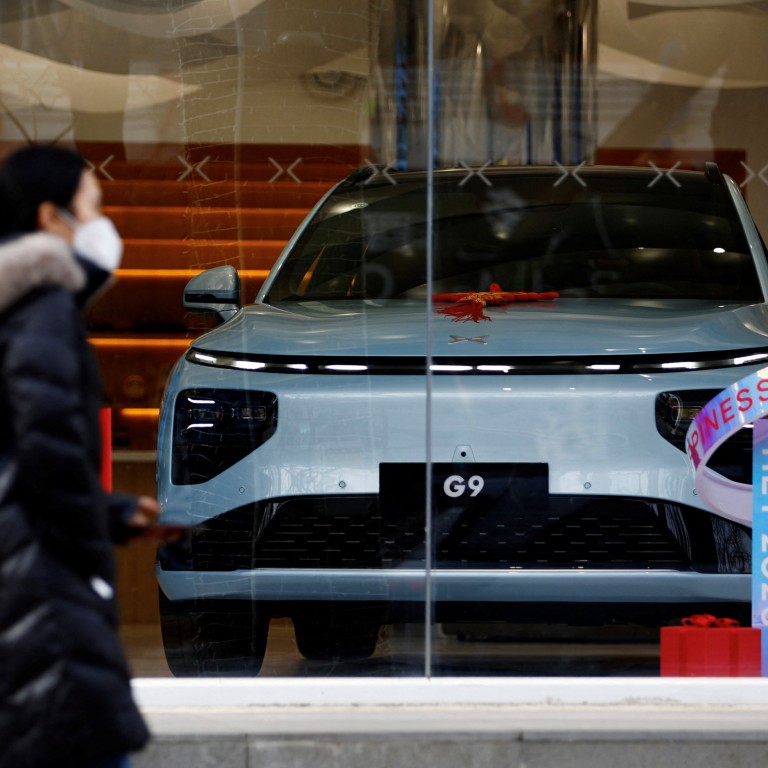
Beijing and Xian are latest Chinese cities to offer cash subsidies on EV purchases, after price cuts by carmakers fail to drive up sales
- Market sentiment appears to be weak and the incentives may not spark a sales boom, partner at private-equity firm Unity Asset Management says
- The number of provincial governments offering subsidies to EV buyers has grown to 14 since January
Residents of the Chinese capital can receive a cash subsidy of 10,000 yuan (US$1,452) if they replace their existing cars with battery-powered vehicles between March 1 and August 31, the municipal government said on Tuesday.
In Xian, the capital of China’s northwestern Shaanxi province, EV buyers can receive a 6,000 yuan subsidy for purchases before the end of April.
“Regional governments are betting on the EV sector to spur consumption and drive [economic] growth,” said Cao Hua, a partner at private-equity firm Unity Asset Management. “But the market sentiment appears to be weak, and the incentives may not be enough to spark a sales boom.”
China’s EV price war: Volkswagen targets budget drivers with discounts
The total number of provincial governments that are offering subsidies to EV buyers has grown to 14 since January, and includes major carmaking centres such as Shanghai, Jilin and Tianjin, according to data by Cinda Securities. The incentives being offered by local governments come after the State Council, China’s cabinet, officially scrapped national-level EV subsidies from January 1.
Up until these subsidies were scrapped, the central government paid 12,600 yuan to buyers of EVs with driving ranges of more than 400km.
China’s premium EV makers report steep sales plunge after Tesla’s discounts
The cancellation of these national-level subsidies has been blamed for a drop in demand for battery-powered vehicles over the past three months.
In the first two months of 2023, EV makers reported a year-on-year sales growth of 22.8 per cent, hitting 770,000 units, according to the China Passenger Car Association (CPCA). Last year, they saw a 96.3 per cent jump in sales over 2021.
Chinese EV maker Nio signals it is in no mood to join an industry price war
But the price cuts have not effectively fired up sales. The sales of all passenger vehicles – petrol and EVs – slumped 19.8 per cent year on year to 2.68 million units in the first two months of this year, according to the CPCA.
“Local governments rely heavily on the automotive industry to provide jobs and generate industrial output, as they chase fast economic growth,” said Gao Shen, an independent analyst in Shanghai. “EVs are still a bright spot in the Chinese economy, now that global and domestic powerhouses are revving up the development of new models to attract buyers.”
China, the world’s largest EV market, is expected to surpass Japan as the world’s largest car exporter in the coming two or three years, buoyed by strong sales of its EVs abroad, Gao added.

